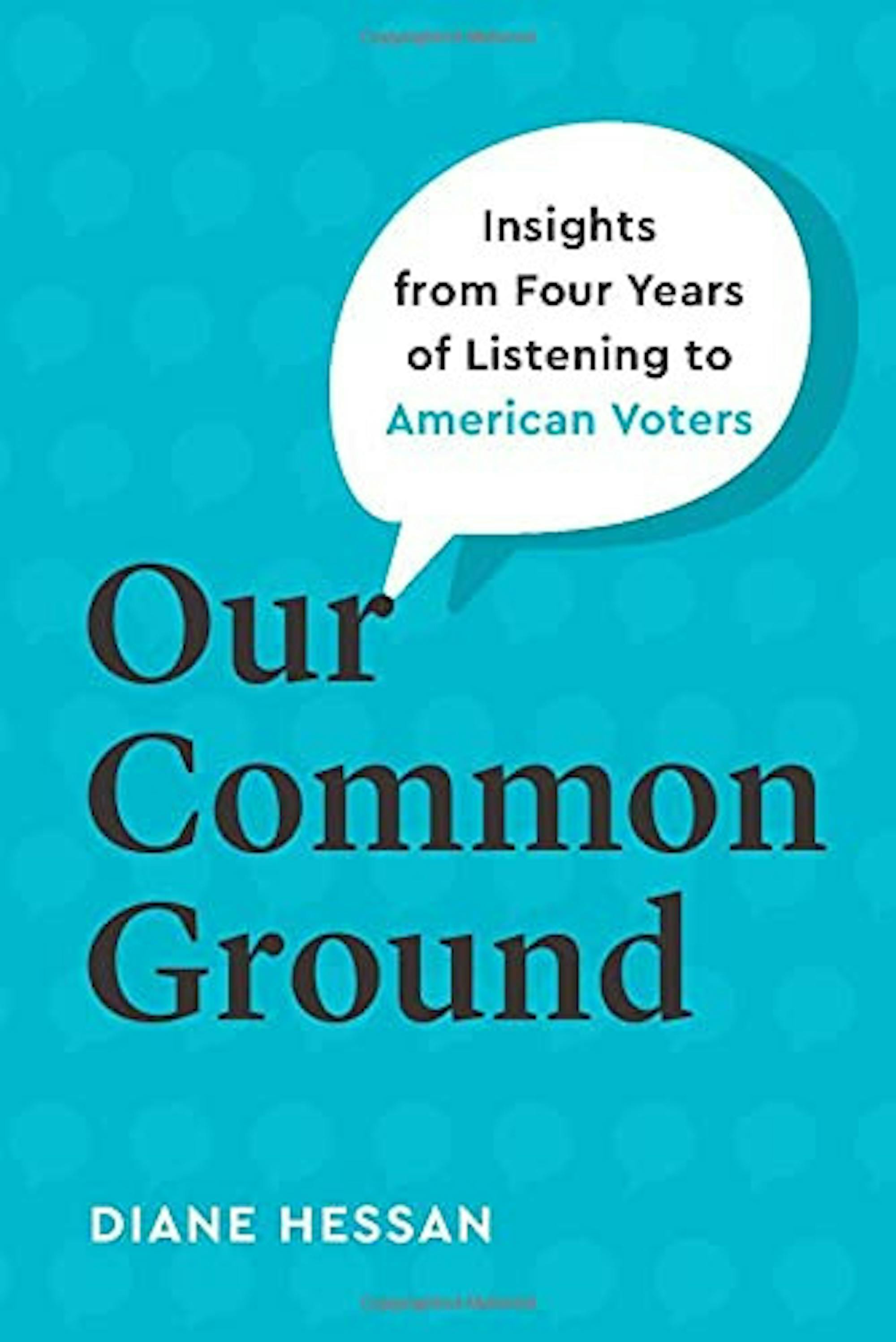Diane Hessan (J’76), entrepreneur, researcher and author of “Our Common Ground”spoke over Zoom on Sept. 28 to the Tufts community about her work researching the true face of the American electorate. Sol Gittleman, the Alice and Nathan Gantcher university professor emeritus and Brighter World Campaign co-chair, led the discussion.
“Something about the condition of this nation got to her a few years ago and led her in a somewhat different direction,” Gittleman said. “[She acknowledged] the nastiness of what was turning into political campaigns four, five years ago and decided that she wanted to do something about it.”
That led her to recruit 500 voters of varying demographics from across the nation, meeting with them once a week for four years to get to know them and to understand their interpretation of politics. She sent them everything from video clips to surveys, asking them to respond honestly and compiling the responses in “Our Common Ground,” as well as in a column in The Boston Globe entitled “Understanding the undecided voters.”
One of Gittleman’s first questions related to the name of Hessan’s book. He asked if she ended up finding any common ground among voters.
“When it comes to policy, there is generally much, much more common ground than you would think in the U.S.,” Hessan said. “Let me be clear on what I mean by common ground, because it's not universal agreement, it's not a bunch of Americans sitting in a circle and singing kumbaya ... [Common ground means] you can basically get 80% [of the country] to compromise on a particular solution."
She said that politicians aren't incentivized to make compromises even when agreement can be found.
"The act of resolving the issue takes away talking points for politicians, so we perceive that we agree upon nothing," Hessan said. "We have perceptions of the other side that are really inaccurate."
Hessan also discussed how education factors into polarization and voting habits. She said that while many people think that Democrats are smarter because more educated people tend to vote for Democrats, she believes that the statement involves a definition of education that is too narrow. Multicultural exposures contribute to a broadening of perspective that can shape Democrats' beliefs.
"Education is a huge factor but not for the reasons we think," she said. "College is about so much more than just the intellectual knowledge that you get."
Gittleman then asked about Hessan’s outlook on the future given her research.
“I tried to write a book of hope," she said. "If there is all of this common ground, it seems to me if we change the nature of the conversation that we have in our country, we have a fighting chance at a minimum to just bring the heat down and get us out of the paralysis we are in."
The conversation then shifted to how the perception of candidates can impact voters' choices. Gittleman said the most recent presidential election saw many voters who were disillusioned with both options on the ballot and asked what advice Hessan would give to politicians in either party.
“Seventy-eight percent of American full-time workers say they live paycheck to paycheck,” she said. “Seventy-one percent are in debt … Our citizens are burnt out ... [Voters] are still rejecting any signs of elitism in their candidates because what it signifies is that we don’t understand [their issues]."
The conversation then shifted to audience questions. Hessan said that while she doesn't have one simple answer to resolve some of the issues inherent to politics in the United States, she thinks that a change to the two-party system could prove beneficial.
“There’s never been a time in our country that’s riper for a third party,” she said.“And I understand that the funds and infrastructure you need to have a third party are outrageous and make that very, very difficult to happen, but there is division within the Democratic party … and division among Republicans about where their party ought to go.”
She said as people learned about her research, they often asked whether she talked to a lot of people who initially voted for former U.S. Secretary of State Hillary Clinton and then voted for former President Donald Trump, or who initially voted for Trump and then voted for President Joe Biden. She said she found that the biggest shift was for voters to become less partisan in general.
“For the most part, the biggest movement I saw was a move of Democratic voters to become independents, and Republican voters to become independents,” Hessan said. “I really see a lot of the country becoming more moderate."
With so much on the line in regards to issues like climate change, infrastructure, racism and immigration, Hessan said she remains optimistic that American politics can change.
"As a country, we have enormous problems," she said. "The anger and the blaming has so distracted us, and Washington is paralyzed. We have to do better, and I believe that we can."






